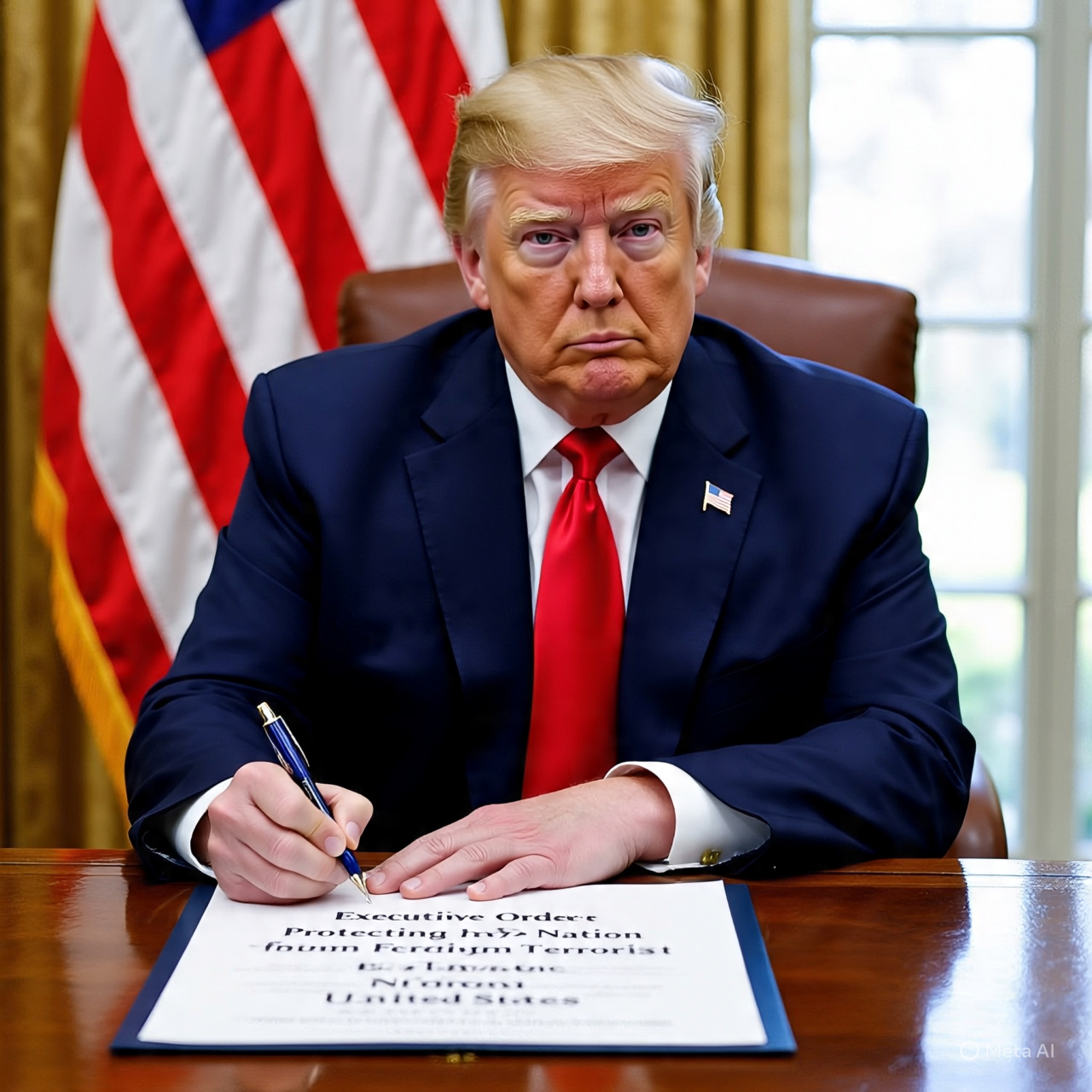FnF News
President Trump Signs Sweeping Travel Ban Affecting 12 Nations, Citing National Security Concerns
June 5, 2025
In a significant policy move, President Donald Trump has signed an executive order imposing a comprehensive travel ban on citizens from 12 countries, citing national security concerns. The countries affected by the ban are Afghanistan, Myanmar (Burma), Chad, the Republic of the Congo, Equatorial Guinea, Eritrea, Haiti, Iran, Libya, Somalia, Sudan, and Yemen. The order also introduces partial restrictions on travelers from seven additional nations, including Burundi, Cuba, Laos, Sierra Leone, Togo, Turkmenistan, and Venezuela. These partial bans primarily affect non-immigrant visa categories, such as tourist and student visas.
Rationale Behind the Ban
President Trump announced the travel ban following a recent attack in Boulder, Colorado, where an Egyptian national allegedly carried out an antisemitic firebombing at a pro-Israel demonstration. Although Egypt is not among the countries listed in the ban, the incident has been cited as a catalyst for the administration’s decision. In a video statement, President Trump emphasized the need for stringent vetting processes to prevent individuals from countries with inadequate security measures from entering the United States.
Details of the Executive Order
The executive order, signed on June 4, 2025, is set to take effect on Monday, June 9, 2025. It prohibits entry into the United States for citizens of the 12 specified countries, with exceptions made for current visa holders, lawful permanent residents, and athletes participating in major international sporting events such as the FIFA World Cup and the Olympic Games. For the seven countries facing partial restrictions, the order limits access to temporary work visas and imposes stricter scrutiny on other visa categories.
Historical Context and Legal Implications
This latest travel ban echoes President Trump’s earlier executive orders during his first term, notably the 2017 “Muslim Ban,” which faced extensive legal challenges before being upheld by the Supreme Court in a revised form in 2018. The current ban is expected to encounter similar legal scrutiny, with critics arguing that it disproportionately targets Muslim-majority countries and may violate constitutional protections against religious discrimination.
Domestic and International Reactions
The travel ban has elicited a range of responses both domestically and internationally. Supporters argue that the measure is a necessary step to protect national security and ensure the integrity of the U.S. immigration system. Opponents, however, contend that the ban undermines America’s commitment to diversity and could damage diplomatic relations with the affected countries. Human rights organizations have also expressed concern over the potential impact on refugees and asylum seekers fleeing conflict zones.
Conclusion
As the implementation date approaches, the travel ban is poised to become a focal point of national debate, highlighting the ongoing tension between security measures and civil liberties. The administration maintains that the ban is a proactive measure to safeguard the nation, while critics warn of its broader implications for America’s global standing and constitutional values.

